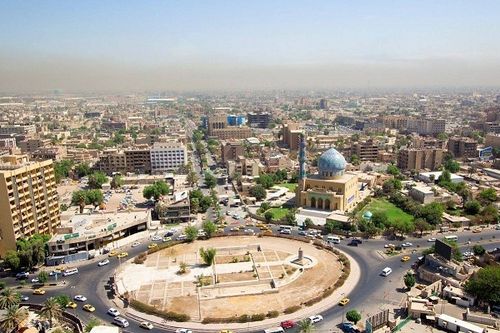Iraq, a country with a rich historical legacy, is situated in the Middle East, bordered by countries like Iran, Turkey, Syria, Jordan, Saudi Arabia, and Kuwait. It encompasses a diverse range of geographic landscapes, from desert plains to fertile river valleys, primarily along the Tigris and Euphrates rivers. Iraq's climate varies, featuring hot summers and mild winters.
Demographically, Iraq is a mosaic of ethnicities and cultures, with a population exceeding 40 million as of 2023. The population is predominantly Arab, with significant Kurdish, Turkmen, and Assyrian minorities. The capital city, Baghdad, is the largest urban center, serving as the political, cultural, and economic hub of the country.
Economically, Iraq's economy has historically been dominated by the oil sector, which provides a significant portion of government revenue. However, recent years have seen a gradual diversification with investments in other sectors, including technology and telecommunications. The country is undergoing a digital transformation, with increasing internet penetration rates and growing IT infrastructure.
Iraq's IT industry has been growing steadily, marked by increased internet connectivity and mobile phone usage. The government has been investing in IT infrastructure to enhance digital services and support economic growth. However, challenges persist, including limited access in rural areas and the need for more robust cybersecurity measures.
The country has also been focusing on fostering a startup ecosystem, with tech hubs and incubators emerging in major cities. This shift towards a digital economy is pivotal for Iraq's future growth, creating opportunities in sectors like e-commerce, digital banking, and cloud computing.
Baghdad, as the capital, is at the forefront of Iraq's digital transformation. The city has witnessed a significant growth in data centers, driven by increasing demand for data storage and cloud services. These data centers are equipped with state-of-the-art technology, ensuring high-speed connectivity, data security, and efficient power management. They employ advanced cooling systems, redundant power supplies, and robust security protocols to ensure uninterrupted service.
Several major data centers have been established in Baghdad, each with varying capacities to cater to different needs. These facilities range from smaller, localized centers to larger, more advanced complexes capable of handling extensive data requirements. They serve not only local businesses but also provide services to neighboring regions, enhancing Iraq's position as a regional IT hub.
The emergence of these data centers has had a profound impact on both local and regional IT services. They provide the necessary infrastructure for hosting websites, cloud storage, and various online platforms. This development has been crucial in supporting the growth of local businesses, startups, and e-government initiatives, thus facilitating a more connected and efficient digital economy in Iraq.
Instant Activation
One of the key advantages of Iraq's new cloud servers is the feature of instant activation. This allows users to quickly deploy their applications and services without significant delays, enhancing business efficiency and responsiveness.
Self-service Management
The cloud servers support comprehensive self-service management, including online rebooting and system reinstallation. This feature empowers users with direct control over their server environment, ensuring flexibility and ease of maintenance.
IP Address Changes
Users have the flexibility to change IP addresses as required. This feature is particularly beneficial for businesses needing to manage their online presence or enhance their cybersecurity measures.
Support for Various Operating Systems
The cloud servers in Iraq support various versions of both Linux and Windows operating systems. This versatility ensures that a wide range of applications and software can be accommodated, catering to diverse user needs.
Online Monitoring of Resources
Users can monitor traffic, CPU, memory, disk, and network interface usage online. This real-time monitoring capability enables efficient management of resources and helps in identifying and resolving issues promptly.
Cost-Effective Solutions
With a monthly rental fee of just $8.5, these cloud servers provide an affordable solution for businesses and individuals alike. This competitive pricing makes advanced IT infrastructure accessible to a broader audience, supporting the growth of a digitally inclusive society.
The introduction of advanced cloud servers in Baghdad marks a significant milestone in Iraq's digital journey. These developments not only enhance the technological landscape of the country but also pave the way for a more connected and efficient future. As Iraq continues to embrace digital transformation, its cloud servers stand as a testament to the nation's resilience and forward-looking vision in the realm of technology and innovation.
